The error message stating "the file cannot be accessed by the system" frequently arises among computer users. This error can be frustrating and disruptive, especially when trying to access important files or documents.
Understanding the causes of this error and learning how to resolve it is essential for maintaining a smooth and efficient computing experience. Here, we will explore the various causes of the error and provide solutions to address the issue.
Part 1: Causes of "the file cannot be accessed by the system"
There are several potential causes for the "this file cannot be accessed by the system" error. Gaining insight into these causes is key to effectively identifying and fixing the issue at hand.
- File Permissions Issue: The file may have restrictive permissions set, preventing the system from accessing it.
- Corrupted file system: If the file system is corrupted, the system may have difficulty accessing specific files.
- Disk Errors: Physical errors on the disk can lead to files becoming inaccessible to the system.
- Virus or Malware Infection: Malicious software can corrupt files or restrict access to them.
- File in Use by Another Program: If the file is currently in use by another program, the system may not be able to access it.
- Insufficient System Resources: If the system does not have enough resources (such as memory or processing power), it may struggle to access certain files.
- File Path Too Long: If the file path exceeds the maximum character limit allowed by the system, the file may become inaccessible.
- File Deleted or Moved: If the file has been accidentally deleted or moved to a different location, the system will be unable to access it in its original location.
Part 2: Stuck with "file cannot be accessed by the system" Error? 7 Solutions
When encountering the file cannot be accessed by the system windows error, it is important to have a range of potential solutions at your disposal. There are several methods by which this problem can be fixed.
Fix 1: Check for File Corruption

-
Repair damaged files with all levels of corruption, including blank files, files not opening, unrecognizable format, unreadable content, files layout changed, etc.
-
Support to repair all formats of PDF, Word, Excel, PowerPoint, Zip, and Adobe files.
-
Perfectly repair corrupted files with a very high success rate, without modifying the original file.
-
No limit to the number and size of the repairable files.
-
Support Windows 11/10/8/7/Vista, Windows Server 2003/2008/2012/2016/2019/2022, and macOS 10.10~macOS 13.
Wondershare Repairit distinguishes itself as the best tool available for fixing corrupted files. It is capable of effectively restoring corrupted files and documents thanks to its sophisticated algorithms and intuitive UI.
It is the preferred option for people looking for a dependable and effective solution because of its adaptability in handling a variety of file types and its capacity to restore severely corrupted data. Here are the steps to fix a corrupt file using the tool:
Step 1: Start by going to 'More Types Repair' and choosing 'File Repair' to access the file repair feature in Wondershare Repairit.
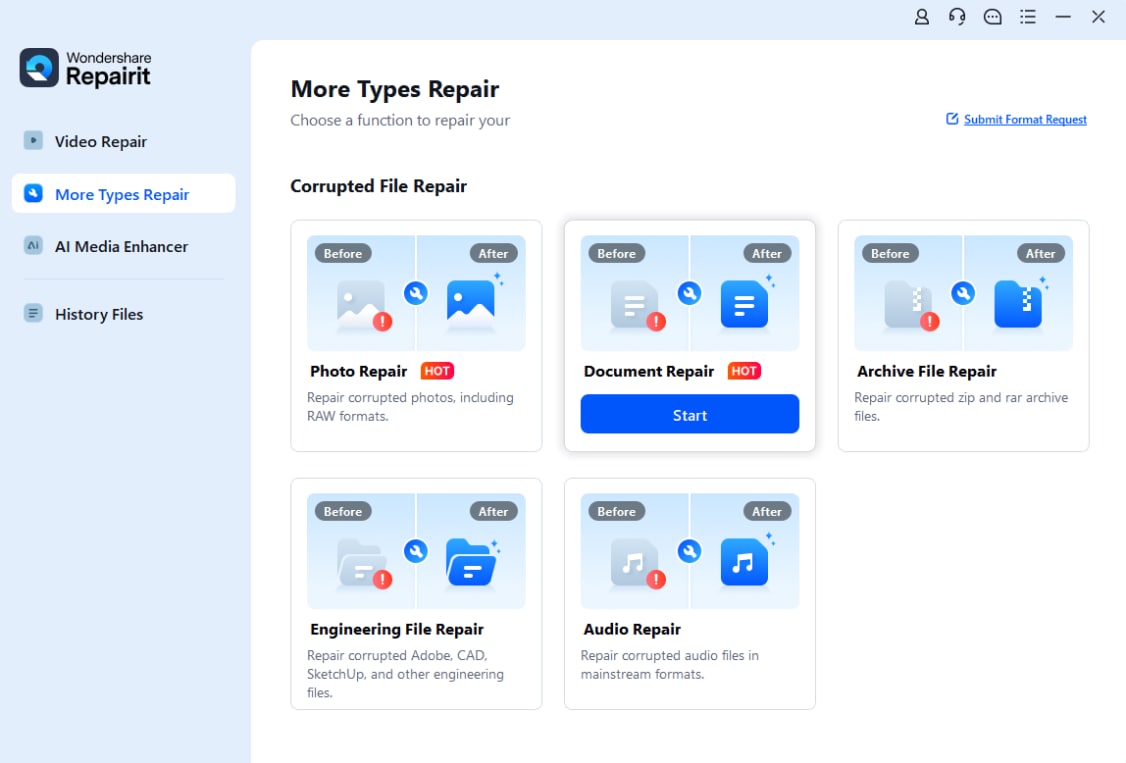
Step 2: Use the '+Add' button to select the corrupted files you want to repair. You can upload multiple files at once, but be aware of file size limits to prevent any uploading issues.
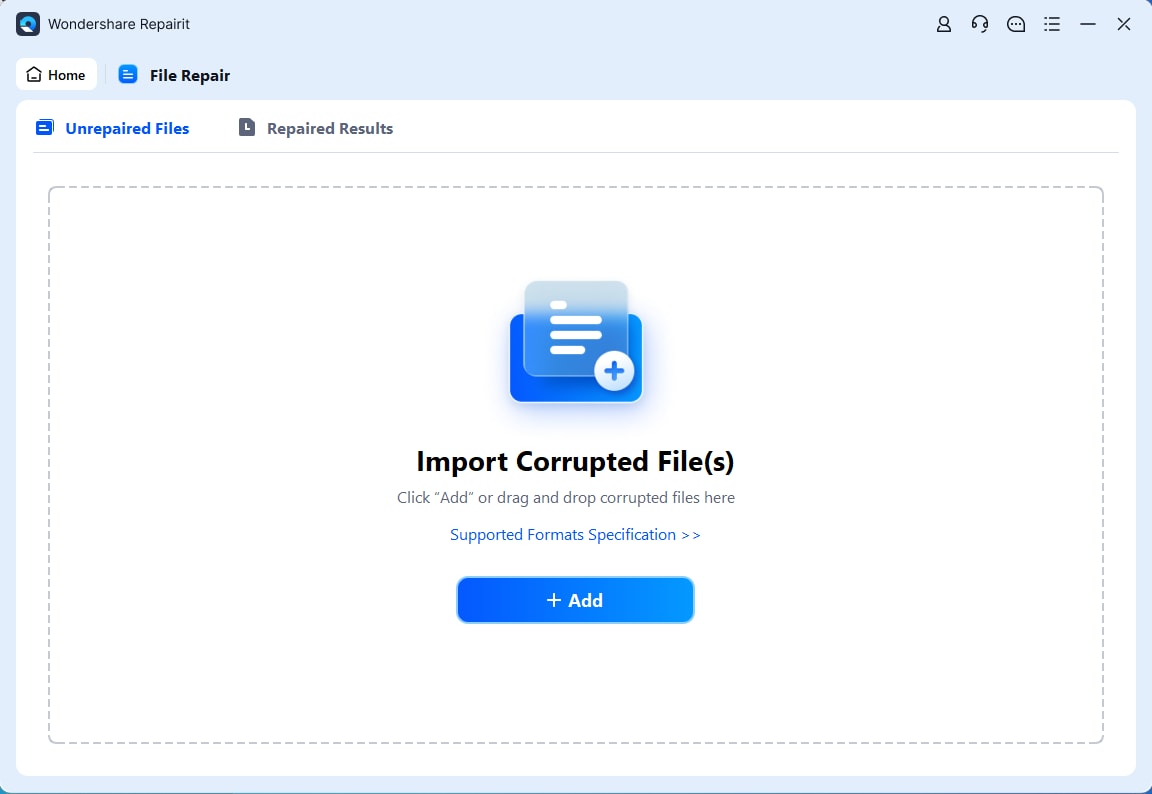
Step 3: Once your files are uploaded, click 'Repair' to start the repair process. Repairit will show the progress in real-time. Avoid interrupting the repair process to prevent any potential data loss.
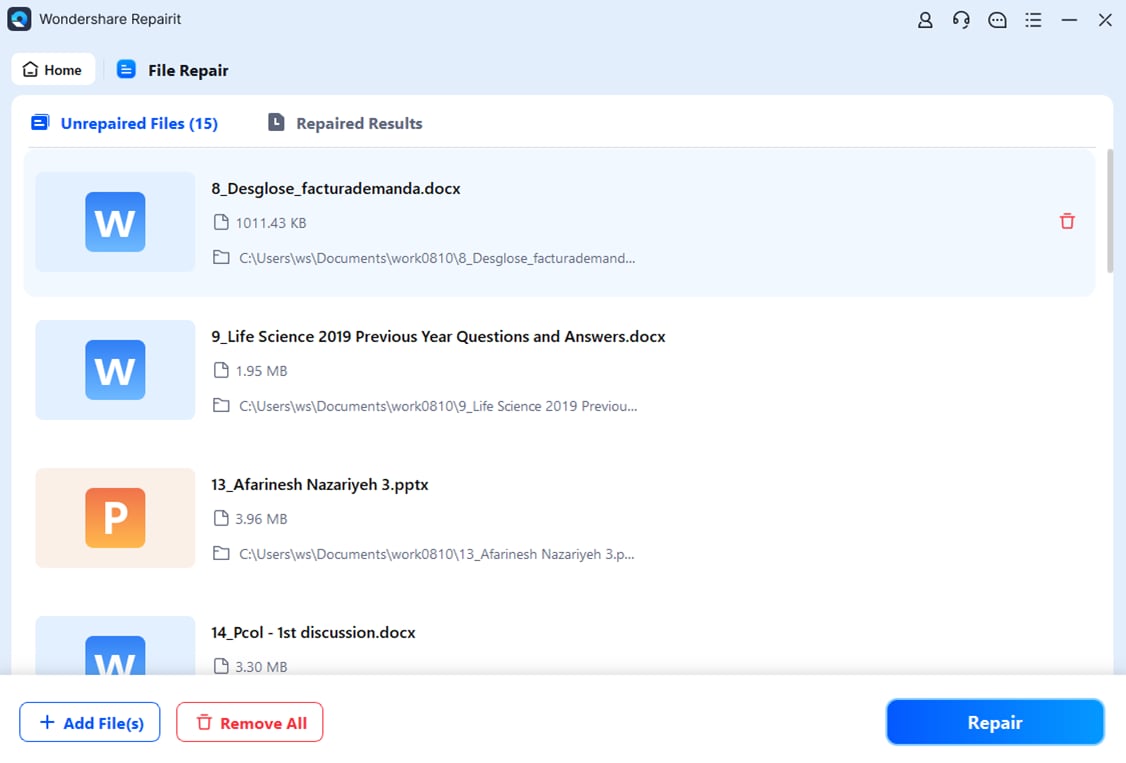
Step 4: After the repair is finished, check the repaired files to ensure they are intact. If you are satisfied, click ''Save' to export the fixed zip files to your desired location on your computer. Thoroughly review the previewed files to confirm that all data has been successfully recovered.
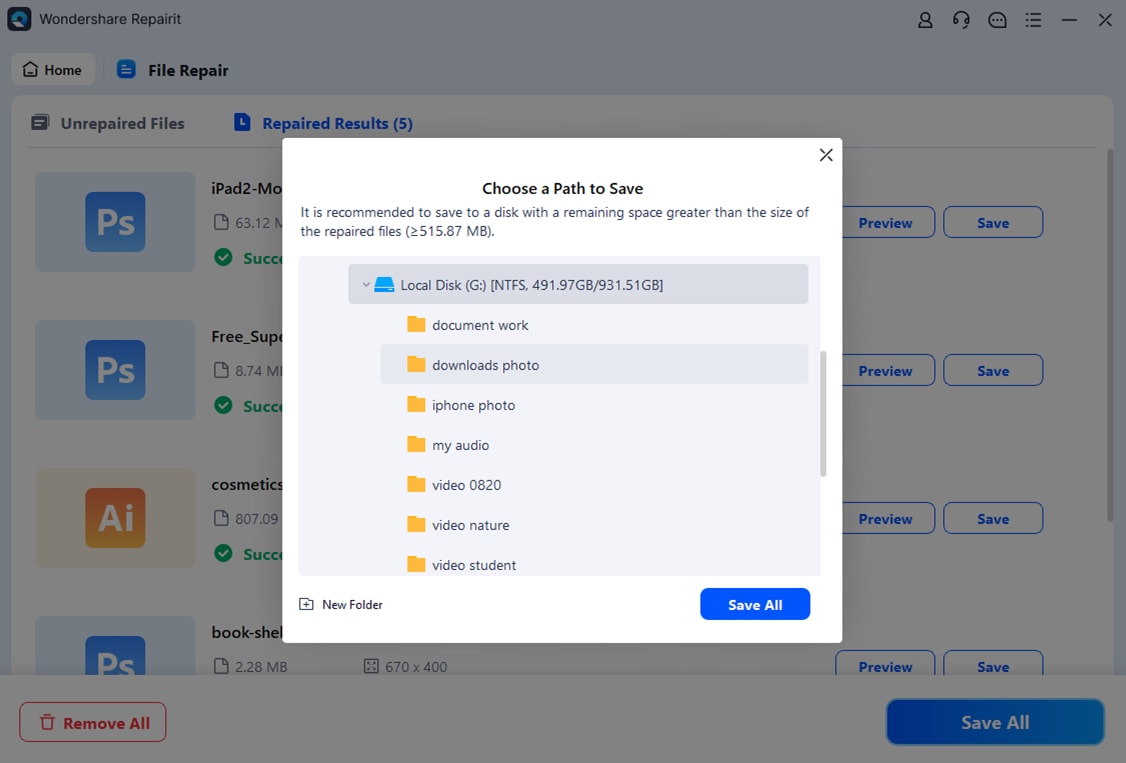
Fix the File Cannot be Accessed by the System Error Now

Fix 2: Perform a Clean Boot
Performing a clean boot helps identify and troubleshoot software conflicts that may be causing the access issue.
Step 1: Press "Windows + R" to open the Run dialog box.

Step 2: Type "msconfig" and hit Enter.
Step 3: In the System Configuration window, go to the Services tab and check "Hide all Microsoft services."
Step 4: Click on "Disable all" and then go to the Startup tab.
Step 5: Hit "Open Task Manager" and disable all startup items.
Step 6: Exit Task Manager and then click "OK" in the System Configuration window.
Step 7: Restart your computer.
Fix 3: Update Drivers
Outdated or incompatible drivers can lead to access problems, updating them ensures system compatibility and functionality.
Step 1: Press "Windows + X" and select Device Manager.

Step 2: Expand the category of the device whose driver you want to update.
Step 3: Right-click on the device and select "Update driver."
Step 4: Select "Search automatically for updated driver software" and adhere to the instructions displayed on your screen.
Fix 4: Perform Disk Cleanup
Disk cleanup helps free up space and remove unnecessary files that may be causing access issues on the drive.
Step 1: Press "Windows + S" and search for "Disk Cleanup."
Step 2: Select the drive you want to clean up and click OK.
Step 3: Check the boxes for the files you want to delete and click OK.
Step 4: Confirm the cleanup process.

Fix 5: Format the Disk Driver
Formatting the disk driver can resolve access issues stemming from file system errors or corruption.
Step 1: Press "Windows + X" and select Disk Management.

Step 2: Right-click on the disk you want to format and choose Format.
Step 3: Select the file system and allocation unit size, then click OK.
Step 4: Confirm the format operation.
Fix 6: Run the SFC Command
Running the System File Checker scans and repairs corrupted system files that may be causing access problems.
Step 1: Press "Windows + X" and select Windows Terminal (Admin).

Step 2: Enter "sfc /scannow" and hit the Enter key.
Step 3: Wait for the System File Checker to scan and repair any corrupted system files.
Fix 7: Temporarily Disable Windows Security
Disabling Windows Security temporarily can help determine if it's blocking file access and causing the issue.
Step 1: Open Windows Security from the Start menu.

Step 2: Go to Virus & threat protection settings.
Step 3: Turn off Real-time protection. Try accessing the file again.
Part 3: Tips to Avoid "file cannot be accessed by the system" Error Happen
Preventing the file cannot be accessed by system error from occurring in the future requires proactive measures. With some helpful tips, individuals can avoid encountering this error in the future.
- Avoid Special Characters in Image names: Avoid using special characters or symbols in Image names to prevent access issues.
- Check File Permissions: Check the file permissions to make sure they allow proper access to the system.
- Update Operating System and Software: Regularly update your operating system and software to avoid compatibility issues.
- Use Reliable Antivirus Software: Use reliable antivirus software to prevent any malware that could cause file access errors.
- Consider Saving Files in Different Formats: Consider saving your files in a different format if you frequently encounter access problems.
- Backup Important Files Regularly: Backup your important files regularly to prevent data loss in case of access errors.
Conclusion
The "0x80070780 the file cannot be accessed by the system" error can be attributed to various causes. You can effectively address this error, restore file accessibility, and minimize the risk of encountering similar issues in the future by understanding the underlying causes and implementing the solutions and tips discussed here.
1. What does the "File Cannot Be Accessed by The System" error message signify?
The error message "File Cannot Be Accessed by The System" typically indicates that the operating system or a specific application is unable to access a particular file. This could be due to permission issues, file corruption, or other underlying factors that prevent the system from accessing the file as intended.
2. Can network-related issues cause the "File Cannot Be Accessed by The System" error?
Yes, network-related issues can contribute to this error. If the file in question is located on a network drive or shared folder, issues such as network connectivity problems, permissions on the network share, or access restrictions set by network administrators can lead to the "File Cannot Be Accessed by The System" error.
3. How can I determine which specific file is causing the error?
To identify the specific file that is triggering the "File Cannot Be Accessed by The System" error, you can start by noting the file path mentioned in the error message. This path will indicate the location of the problematic file. Additionally, you can use file management tools or command-line utilities to navigate to the specified location and identify the file in question.
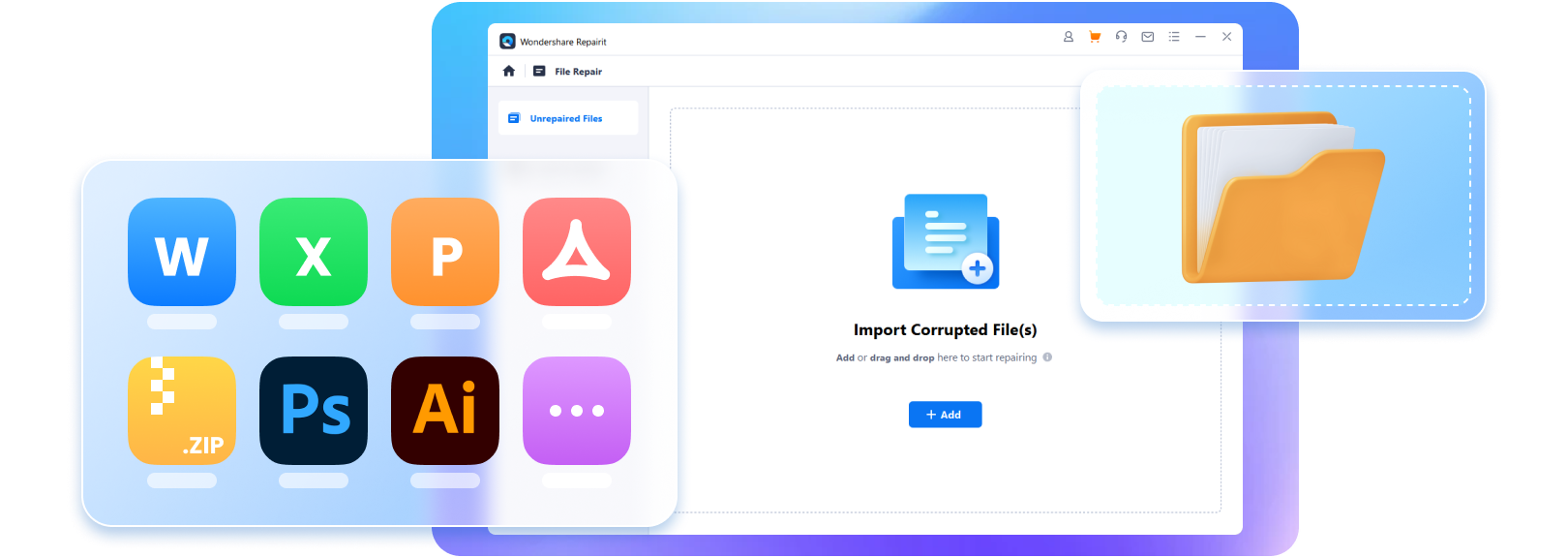

 ChatGPT
ChatGPT
 Perplexity
Perplexity
 Google AI Mode
Google AI Mode
 Grok
Grok
